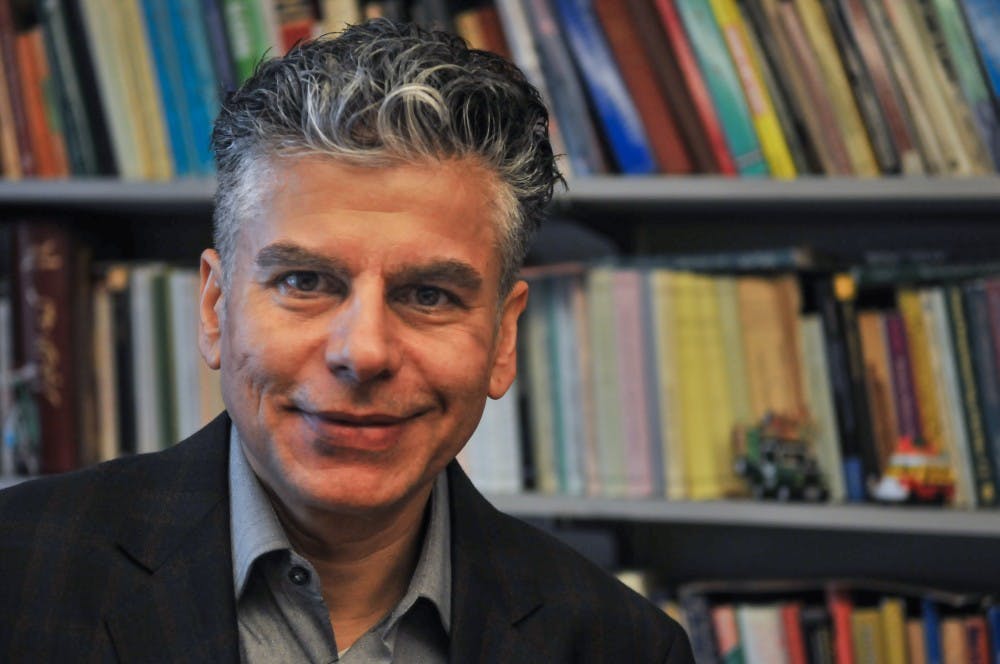A quick glance into the office of Jamal Elias, the chair of Penn’s Religious Studies Department, and you'd be hard–pressed to determine the color of the wallpaper.
Shelves teeming with books line the walls. A closer look around the office reveals several representations of inquiry into worlds beyond that of West Philadelphia. A setar, a bicycle, a typewriter, books spanning the history and modernity of Islamic world. These seemingly disparate items find their intersection here in this office, brought together by Jamal himself. So how did he—and his stuff—end up here in Claudia Cohen Hall?
At his high school in Pakistan, he mostly studied science. During his first year at Stanford, he took a Religious Studies class as a distribution requirement. “Actually, to be perfectly honest,” Jamal admits, laughing, “I took it because I figured my grades weren’t looking that great. I thought it would be a GPA booster because I said, hey, I know all about Islam. Turns out I didn’t”.
Academic study gave his understanding of religion new dimensions. Approaching religion in the classroom setting was "so different from what I thought, from what you learn about religion from your life, from community and society and your neighborhood." Jamal felt "amazed at how kind of rich and complex it was."
From then, he was hooked. Though he studied both Islam and Buddhism, he felt a connection with Islam in particular. Years later, that connection continues.
He recently published Alef is for Allah, a book about children in the Islamic world and teaches his own course, Islam in the Modern World. In his classes, he hopes to broaden students’ views of the world and help them recognize that “people can be very different from you and at the same time very very similar.”
He adds, "I think people [at Penn] that they are very different because the news keeps telling us that the Islam world is very different."
Outside of writing or teaching about the Islamic world, Professor Elias spends his time cycling and in the flamenco scene. He was a competitive equestrian as a child and for a few years at Stanford, until he made the shift to riding bicycles, which he likens to “a mechanical horse."
His eyes light up talking about the several bikes he owns: three racing bikes, a city bike he often rides to class, and a bike for pub crawls that he claims he hasn't used (yet).
Though he says he hasn't ridden seriously in years, he considers starting up again in the spring. He still trains with a high–tech bike at home, where he rides through virtual reality environments alongside friends living in Europe.
Jamal also plays the flamenco guitar. He has spent several months in Granada, Spain, where he loves the presence and appreciation of flamenco in the culture. To his dismay, “Philly doesn’t have a strong flamenco scene, certainly no guitar scene.”
But his beloved setar (a smaller version of the sitar) still sits in his office, across the room from his bicycle and surrounded by rows and rows of books.

